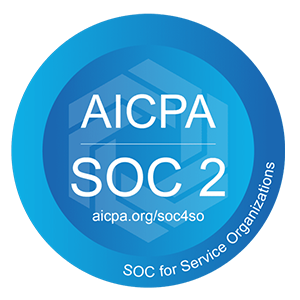In today’s evolving work environment, remote work has transitioned from a rare privilege to a common practice. Clear and comprehensive remote work policies are crucial for setting expectations and ensuring smooth operations. These policies not only define the framework for remote work but also help in aligning employee actions with organizational goals. By establishing well-defined policies, companies can mitigate potential issues and foster a productive remote work environment.
Remote work policies serve as a foundation for managing various aspects of remote work, including communication, performance, and security. Without clear guidelines, both employers and employees may face confusion and inefficiencies. This blog explores the essential elements of remote work policies, offering insights and best practices to help organizations develop effective frameworks that support their remote workforce.
Benefits of Remote Work
Remote work offers numerous advantages that contribute to both employee satisfaction and organizational efficiency. Here are some key benefits:
- Increased Flexibility: Employees can better manage their work-life balance by setting their own schedules and working from locations that suit their needs.
- Reduced Commuting: Eliminates the time and stress associated with daily commuting, leading to improved well-being and productivity.
- Cost Savings: Employers save on overhead costs such as office space, utilities, and supplies, while employees save on commuting expenses and work attire.
- Broader Talent Pool: Organizations can access a wider range of talent by removing geographical limitations, leading to a more diverse and skilled workforce.
- Improved Job Satisfaction: Flexible work arrangements often lead to higher job satisfaction and employee retention, as workers appreciate the autonomy and trust.
Challenges of Remote Work
Despite its advantages, remote work comes with its own set of challenges that need to be addressed for successful implementation. Here are some common challenges:
- Communication and Collaboration Issues: Remote work can lead to misunderstandings and difficulties in coordinating tasks without face-to-face interactions.
- Maintaining Company Culture: Building and maintaining a cohesive company culture is challenging when employees are dispersed and not physically present.
- Time Management Difficulties: Without the structure of a traditional office environment, employees may struggle with managing their time and staying focused on tasks.
- Isolation and Loneliness: Remote work can lead to feelings of isolation and loneliness, as employees miss out on social interactions and team dynamics.
- Technology and Security Concerns: Ensuring that remote work setups are secure and that employees have access to reliable technology can be challenging and requires ongoing support.
Key Components of Remote Work Policies
A well-structured remote work policy should include several key components to ensure clarity and effectiveness. It should define what constitutes remote work, establish eligibility criteria, and outline guidelines for work hours and availability. Additionally, the policy should specify the equipment and technology requirements necessary for employees to perform their duties effectively.
By detailing these components, organizations can provide employees with clear expectations and resources needed for successful remote work. This clarity helps in preventing misunderstandings and ensures that employees are equipped to meet their responsibilities while working remotely. Establishing these guidelines is crucial for maintaining productivity and efficiency in a remote work setting.
Setting Expectations for Remote Employees
Establishing clear expectations for remote employees is essential for maintaining productivity and accountability. Organizations should outline communication protocols, including response times and preferred methods of contact. Additionally, setting performance metrics and tracking productivity are important for evaluating employee contributions and addressing any issues that arise.
Guidelines for virtual meetings and team collaboration should also be included to ensure that remote employees can effectively engage with their teams. Clear expectations help in minimizing misunderstandings and ensure that employees are aligned with organizational goals. By setting these standards, organizations can foster a more organized and productive remote work environment.
Security and Data Privacy in Remote Work
Security and data privacy are critical considerations in remote work arrangements. Organizations must implement robust measures to protect sensitive information and ensure that remote employees adhere to security protocols. This includes using secure connections, employing encryption tools, and enforcing data protection practices.
Training remote employees on cybersecurity and remote work security is essential for mitigating risks and safeguarding company assets. By prioritizing security and data privacy, organizations can prevent data breaches and maintain the integrity of their information systems. Effective security practices are crucial for protecting both the organization and its employees.
Legal Considerations for Remote Work Policies
Legal considerations are an important aspect of remote work policies. Organizations must ensure that their policies comply with relevant labor laws and regulations, including those related to workers’ compensation and insurance. Additionally, cross-border remote work scenarios may require attention to international labor laws and tax regulations.
Addressing these legal considerations helps protect both the organization and its employees. By ensuring compliance with applicable laws, organizations can avoid potential legal issues and create a fair and compliant remote work environment. Legal clarity is essential for maintaining smooth and lawful remote operations.
Creating an Inclusive Remote Work Environment
An inclusive remote work environment is essential for fostering a diverse and equitable workplace. Organizations should ensure that their remote work policies are accessible to all employees, promoting diversity and inclusion regardless of physical location. Building a supportive remote work culture involves addressing various needs and providing equal opportunities for all team members.
By creating an inclusive environment, organizations can enhance employee satisfaction and engagement. This approach helps in fostering a positive remote work culture where all employees feel valued and supported. Inclusivity in remote work policies contributes to a more harmonious and effective work environment.
Technology and Tools for Remote Work
Effective remote work relies on the right technology and tools. Organizations need to select and integrate essential software for communication, project management, and collaboration. Choosing the right tools can enhance productivity and streamline remote work processes.
Best practices for using these tools include providing adequate training and support to employees. Evaluating and integrating new technologies as needed can further improve remote work efficiency. By leveraging technology effectively, organizations can create a more seamless and productive remote work experience.
Managing Remote Teams Effectively
Managing remote teams requires a different approach compared to traditional office settings. Building trust and maintaining open lines of communication are key to successful remote team management. Setting clear goals and expectations helps in ensuring that team members remain accountable and engaged.
Strategies for fostering team cohesion and addressing remote work challenges are essential for effective management. By implementing these strategies, organizations can enhance team collaboration and maintain high performance levels. Effective remote team management is crucial for achieving organizational objectives and maintaining a motivated workforce.
Training and Development for Remote Employees
Ongoing training and development are vital for remote employees to ensure they stay engaged and continue to grow professionally. Providing access to remote learning opportunities and encouraging self-directed learning helps employees develop their skills and knowledge. Tailoring training programs to meet the unique needs of remote workers can further enhance their effectiveness.
Supporting professional development in a remote setting helps employees stay motivated and contribute more effectively to the organization. By investing in training and development, organizations can ensure that their remote workforce remains skilled and capable of meeting evolving challenges.
Remote Work Policy Examples and Templates
Having access to examples and templates of remote work policies can serve as a valuable resource for organizations. These templates provide a starting point for developing customized policies that fit specific industry needs and organizational requirements. Reviewing best practices and sample policies can offer insights into creating effective remote work frameworks.
Customizing these examples to align with organizational goals and employee needs ensures that policies are practical and relevant. This approach helps in establishing clear guidelines and expectations for remote work, contributing to a successful remote work environment.
Adapting Remote Work Policies for Different Roles
Different roles may require tailored remote work policies to address their unique needs. Customizing policies for various job functions ensures that specific requirements and responsibilities are considered. Flexibility in policy implementation allows organizations to accommodate diverse work arrangements and job roles.
By adapting policies to fit different roles, organizations can provide more effective support and guidance for remote employees. This tailored approach helps in addressing the unique challenges and requirements of various job functions, contributing to a more efficient remote work setup.
Remote Work Policies and Employee Well-being
Employee well-being is a critical consideration in remote work policies. Supporting mental health, promoting work-life balance, and providing resources for remote employees are essential for maintaining a healthy and productive workforce. Addressing well-being proactively helps in enhancing employee satisfaction and performance.
Creating policies that prioritize employee well-being contributes to a positive remote work environment. By focusing on the holistic needs of remote employees, organizations can foster a supportive and engaging work culture that supports overall employee health and productivity.
How Remote Raven Can Support Your Remote Work Needs
As remote work becomes a central aspect of modern business operations, partnering with a trusted provider like Remote Raven can enhance your remote work experience. At Remote Raven, we specialize in offering tailored virtual assistant services designed to streamline your remote work processes and boost productivity. Our skilled VAs manage administrative tasks, support team collaboration, and ensure your remote work environment runs smoothly.
With Remote Raven, you gain access to experienced professionals who understand the nuances of remote work. Our comprehensive support services are customized to fit your unique needs, ensuring that you receive flexible, reliable, and cost-effective solutions. For more information and to explore how we can assist you in achieving remote work success, visit our website at Remote Raven and schedule a free consultation today. Let us help you optimize your remote work experience with our expert support.





